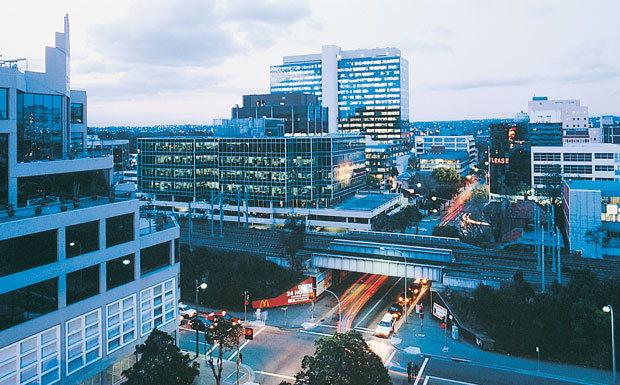immigration, housing and traffic: why people are wrong about western sydney

One of the people closest to me is Claire. We grew up together in a little interstate country town, and enjoyed our university years more or less together in a capital city. We shared houses, friends and family, and after I moved a long way from home, I was thrilled to find out she was moving to a nearby city. We catch up regularly.
Like many tertiary-educated individuals born in the late 1970s, Claire has lived overseas and travelled. She’s worked for several organisations in leadership positions, and during her time as an expatriate, she established a centre for children in a developing country. Since returning to Australia, she has worked for a couple of non-profit social service agencies and is once again in management.
Claire is a lover of books –as befits someone who spent time studying English literature at Oxford University – and continues to be well-read. We regularly recommend books to each other and our book groups. She doesn’t watch much commercial television, preferring to listen to ABC Podcasts.
She’s spiritual, but not fundamentalist; she practices yoga, is well-versed in theology and psychology, and engaged in her community. As a keen camper, she’s concerned about environmental issues and climate change. She lives on a large block, composts, and grows some of her own food. She prefers to purchase groceries from small boutique fruit and vegie sellers.
Six years ago she met her match while she was undertaking some part-time postgraduate study, and her life partner is completing a Masters degree. In the last two years she gave birth to two children and I suspect their traditional yet unusual names will not often recur among their peers. She will return to part-time work within the next few months.
Her political views would be described by many as centre-left, with social justice underpinning many of her opinions. She supports marriage equality, not only because she has homosexual friends, but because she believes that it is a matter of justice. She is appalled by xenophobia, racism and ignorance, and despairs when she hears politicians advocating certain policies that appear to resonate with undercurrents of public hostility towards new migrants and refugees.
While she understands that entrepreneurialism is important to both society and the economy, and has seen the benefits of contribution and reward accruing to individuals who create a way to work, she also believes that the community should provide for those who through no fault of their own are unable to provide for themselves.
And did I mention Claire lives in western Sydney? She’s not bothered by boat people, crowded roads and a long commute, or the cost of living to fund a so-called “aspirational” lifestyle. And neither are the several other friends I have made in western Sydney.
Many of the media portrayals of western Sydney dwellers represent one particular stereotype – one that collapses on examination. The reason commentators focus on western Sydney during federal election campaigns is because many of them are “marginal”. That is, held by a margin of only a few per cent. Such seats change hands by just a few thousand electors changing their vote. It is astounding that few seem to have recognised that for as many people supporting a particular policy issue, there are around as many opposing it. Why are marginal seats in other areas not quizzed in the same way? I haven’t noticed anyone questioning members of inner-city marginal electorates – like Swan in Perth, or Brisbane – about asylum seekers or housing costs.
It is unjust that a diverse population of almost two million people in western Sydney appears to be largely depicted as selfishly obsessed with incomes, traffic and asylum seekers, when in fact the issues influencing those electors are almost as varied as the inhabitants themselves. It is frustrating that political parties appear to be courting a certain typecast view of western Sydney voters in their electioneering. And it is unfortunate that these preconceived notions are generally unquestioned, when there are plenty of people who bust stereotypes in every electorate.
Moira Byrne is a Canberra-based political scientist, policy analyst and writer.


I completely agree with this, but I think that the questioning of the stereotype could go even further and challenge the idea of there even being a distinct entity called “Western Sydney” that could be assigned specific characteristics seperate to the broader demographic trends in Australia at large.
I think our fascination with “Western Sydney” comes partly from the fact that we like to use a militaristic lexicon to describe elections – campaigning is “fighting” “winning seats” “battleground states” “Battle for Western Sydney” “capture the seat” – which almost encourages us to see distinct geographical regions of Australia as occupied by a certain political party, when, in reality, each region is a complex hybrid of political identities, even within the “safest” seats.
Ultimately, it’s easier for a journalist to group people into false communities rather than deal with that complex reality.